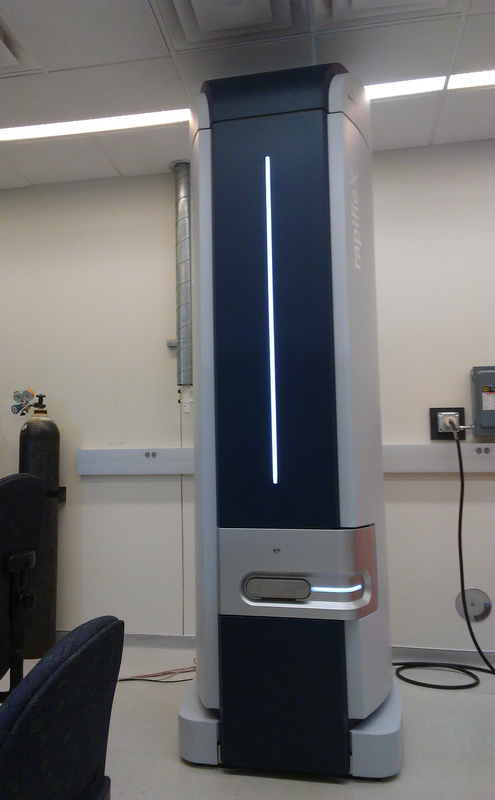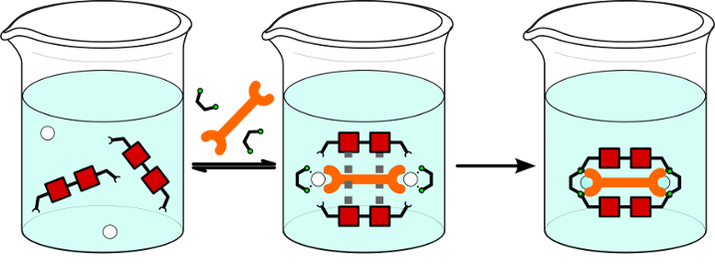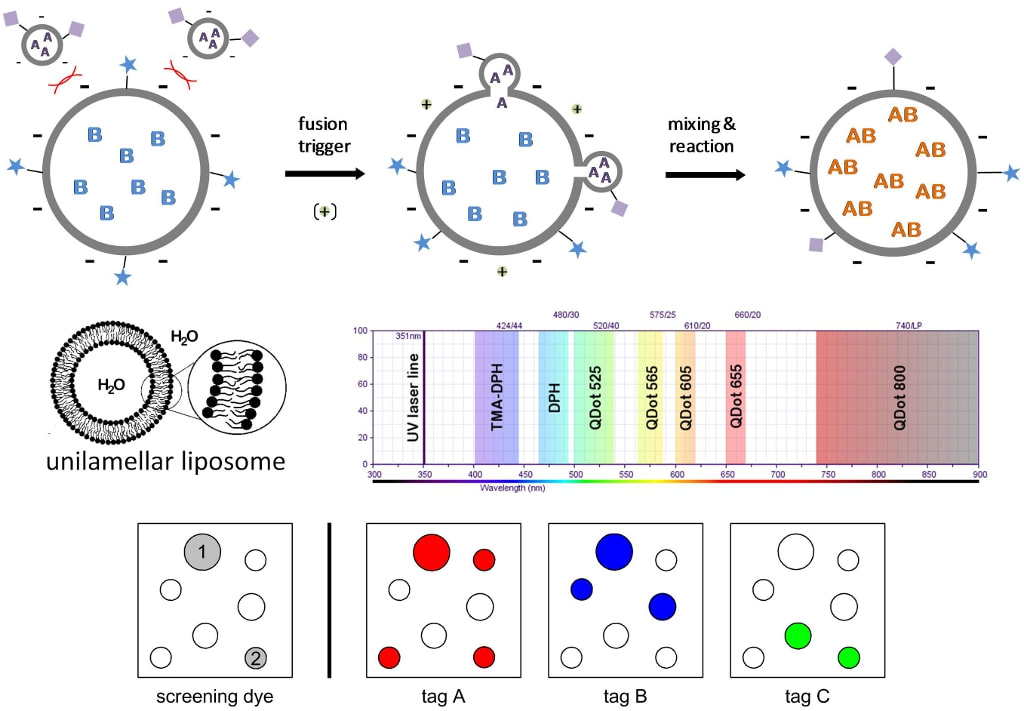|
The National Science Foundation approved our MRI proposal for the acquisition of a cryoprobe-equipped 500 MHZ NMR spectrometer! Dr. Bonizzoni serves as one of the co-PIs on this proposal, together with Profs. Paul Rupar (PI), Elizabeth Papish (coPI), Jason Bara (coPI, Dept. of Chemical and Biological Engineering), and Lukasz Ciesla (coPI, Dept. of Biology). The new instrument will replace one of our current departmental NMR spectrometers; it will provide significantly higher sensitivity and automated acquisition capabilities, shortening experiment times and easing the bottleneck for NMR characterization for the many groups in our department that are heavy users of NMR spectroscopy. Our group will first use the new instrument to study the non-covalent complexation of small-molecule organic guests to oligomeric and polymeric carbohydrates (e.g. cyclodextrins, starches) through binding titrations in water. We are very excited to acquire this new capability, which is projected to come online in early to mid-2020.
The new Bruker rapiflex MALDI-TOF/TOF has been installed! Thanks to the NSF MRI program for funding, and Dr. Carolyn Cassady for heading the MRI proposal that got us this shiny new toy!
Dr. Bonizzoni participated in the three-day PI workshop for the Innovations at the Nexus of Food, Energy and Water Systems (INFEWS) program at the NSF headquarters in Alexandria, VA. The workshop aims at bringing together principal investigators from funded INFEWS proposals to swap ideas, enhance collaborations, and plan for the program's future.
We officially received word from NSF that the MRI proposal for the acquisition of a MALDI/TOF-TOF mass spectrometer has been awarded! Dr. Bonizzoni serves as one of the co-PIs on this proposal, together with Dr. Carolyn Cassady (PI), Dr. Paul Rupar (coPI), and Dr. Yuping Bao (coPI, Dept. of Chemical Engineering). The new instrument will replace our aging MALDI/TOF to provide extremely high resolution and novel MS imaging capabilities that were previously not available. Our group will use the instrument to study the non-covalent complexation of organics to polyelectrolytes (e.g. PAMAM dendrimers). We are extremely excited to acquire this new capability, which is projected to come online in mid-2018.
Michael Ihde, a graduate student in our group, was selected to receive a fellowship from the US Department of Education's Graduate Assistance in Areas of National Need (GAANN) for the 2017-18 academic year. The fellowship will provide tuition and stipend coverage for the year, in addition to access to professional development courses and funding for research supplies. Congratulations Michael!
The Bonizzoni group received funding from the National Science Foundation to participate in the development of polymer-based sensing technologies relevant to Gulf Coast water monitoring (NSF Award #1632825). The award, consisting of a total of $4,000,000, will bring together eleven research groups from five campuses in Alabama and Mississippi, under the aegis of the NSF EPSCoR program.
Dr. Bonizzoni and Dr. Eugenia Kharlampieva (UAB) were awarded seed funding from the UA System to work on a collaborative research project to develop polymer-based sensing technologies for pollutant analysis.
Xiaoli was selected to be a Graduate Council Fellow for the 2016-17 academic year, in recognition of her outstanding work in our graduate program. Congratulations Xiaoli!
Madison Beck, who joined our group last fall as an undergraduate researcher, was awarded a grant from the UA Student Government Association. The funds will support her research on immobilizing cationic polyelectrolytes on plastic surfaces to develop portable and rugged chemosensors for anions. Congratulations Mady!
Our group was awarded funding from UA's College Academy for Research and Creative Activities (CARSCA) to support the development of our "molecular construction set" for the template-directed synthesis of large macrocycles.
Ashley Jolly's GAANN fellowship was renewed for the 2012-2013 academic year. The GAANN program, administered by the US Department of Education, will provide support for the tuition and stipend, as well as access to professional development seminars and some funding for research supplies. This will be Ashley's second year as a GAANN fellow. Congratulations Ashley!
Ashley was selected to receive a fellowship from the US Department of Education's Graduate Assistance in Areas of National Need (GAANN) for the 2011-2012 academic year. The fellowship will provide tuition and stipend coverage for the year, in addition to access to professional development courses and funding for research supplies. Congratulations Ashley!
2011-05-15 Our group was awarded seed funding from the UA Research Grants Council (RGC) to support the development of our functionalized liposome nanoreactors.
|
Categories
All
Archives
March 2024
|




 RSS Feed
RSS Feed
